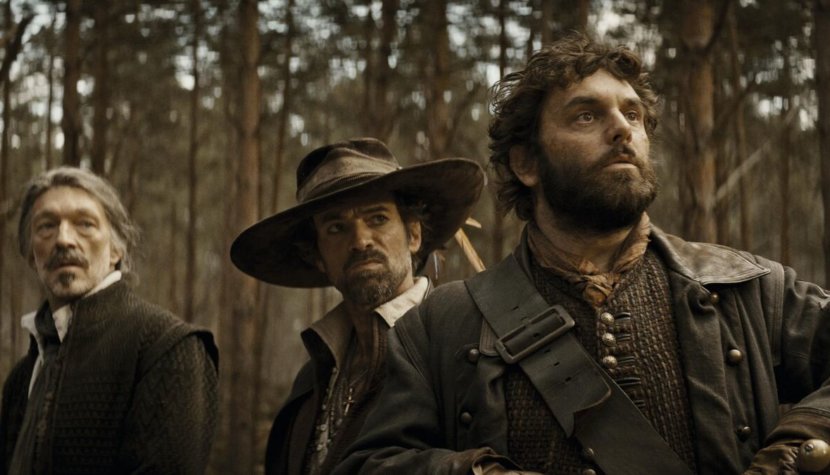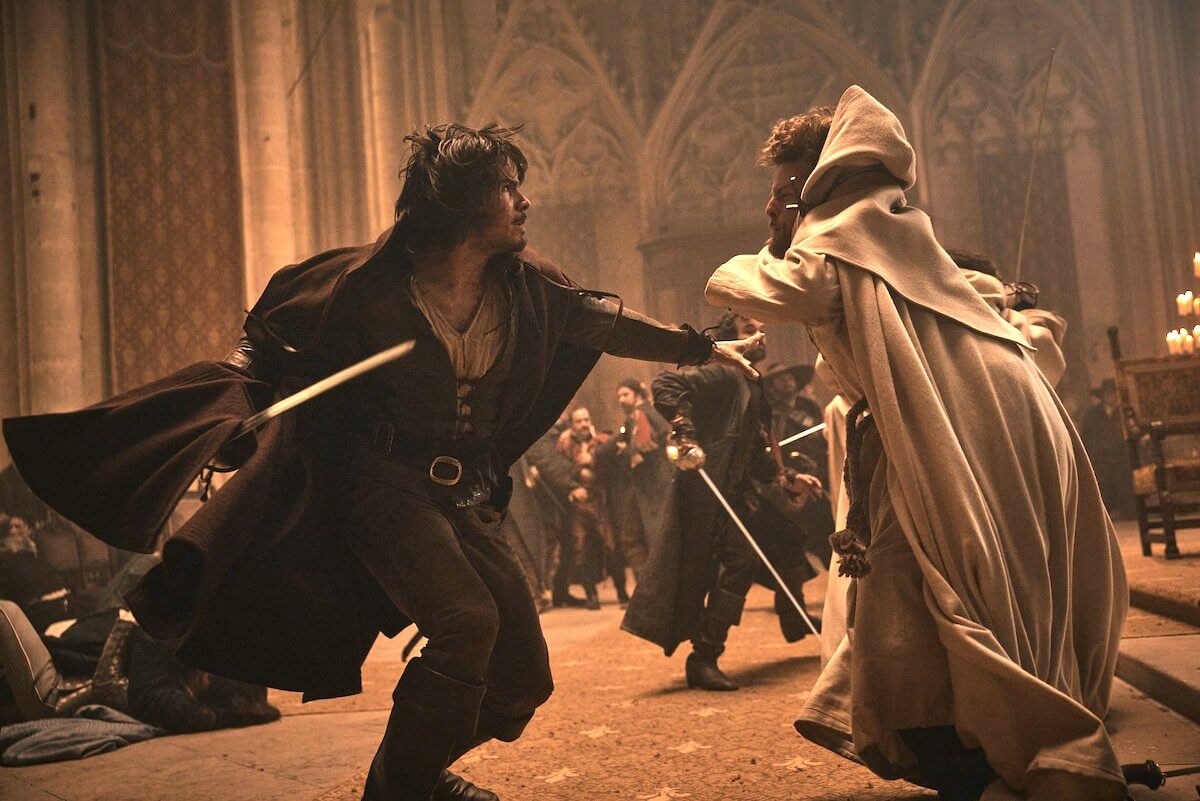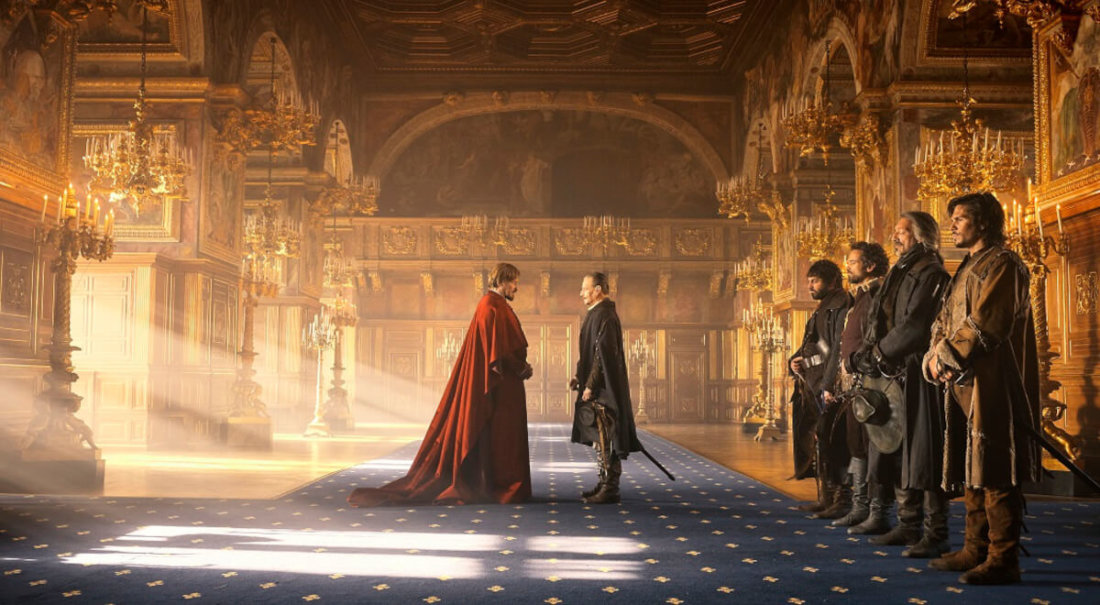THE THREE MUSKETEERS. D’ARTAGNAN. Athos, Porthos, Pathos

It’s hard to do something new with The Three Musketeers. Alexandre Dumas’ novel has been adapted many times – by the French, the Americans and even the Soviets. It was tackled by such diverse filmmakers as Max Linder, Richard Lester and Paul W.S. Anderson – the artistic results were, let’s be fair and tactful, heterogeneous. A musical has been made of it, Walt Disney and Barbie animations have been made of it, even an erotic film has been made of it (The Erotic Adventures of the Three Musketeers, don’t ask me how I know that). What else can be done? Martin Bourboulon answers: “a monumental two-part historical-adventure superproduction.” And I respect such an answer.
We get to know the main characters in The Three Musketeers through action. From the first minutes of the film, D’Artagnan appears to us as an untried youngster, yet a noble and great warrior. He stands up for a lady attacked by thugs, which almost costs him his life. His inexperience and lack of civility leads him to expose himself to the title musketeers in crowded Paris, pulling off as many as three duels in one day. The dueling heroes are attacked by Cardinal Richelieu’s henchmen – and again comes the action. It is a common fight that unites D’Artagnan with Athos, Aramis and Porthos. Bad blood gives way to a lifelong friendship – this, however, may prove to be unexpectedly short-lived. For the heroes become embroiled in a political intrigue in which the future of France is at stake.

Speaking of action, one must admit that it is the strongest point of Bourboulon’s film. The fight scenes are indeed very impressive – shot in long, monstrously satisfying tracking shots, during which the camera, with the most admirable consistency, follows the characters running and rolling on the ground. No unnecessary flashiness, no slow-motion that knocks the immersion out. Just blood, sweat and dust. The physicality, the tangibility of these clashes draws the viewer to the screen – the whole thing looks more like a chaotic struggle for survival than a precise and well-thought-out choreography (and yet it is one!). The viewer’s disbelief is effectively suspended: each time we tremble for the fate of the musketeers. Even John Wick, who is a kind of guru in this field, would not be ashamed of such decently executed action sequences.
In stark contrast to the brutal, raw action scenes is the soap opera-like plot, full of clandestine lovemaking, conspiracies and sudden twists. Such is the charm of cloak-and-dagger novels – brought to a wonderful absurdity in The Manuscript Found in Saragossa. Alexander Dumas, however, is not Count Potocki, but rather the French equivalent of Henryk Sienkiewicz: celebrating the golden age of his nation, a “first-rate secondary writer.” His novels were primarily intended to provide entertainment – and in this role they proved excellent. The same is true in case of Bourboulon’s film: much depends on our attitude. If we expect from The Three Musketeers something more ambitious than a simple but engaging story about the power of friendship and devotion to one’s homeland, we may feel disappointed. Then it is better to turn on the excellent Lost Illusions or reach for any of Balzac’s novels. I assure you that there is plenty to choose from.

Watching the adventures of D’Artagnan, Athos, Aramis and Porthos is pure pleasure – but until. Until a fourth musketeer, unexpected by anyone, enters the game: pathos. Although the main antagonists seem to be Cardinal Richelieu and the mysterious Milady, it is pathos that sows the greatest destruction in Bourboulon’s film. It poisons some scenes, taking away their desired lightness and brilliance – the climax perhaps suffers the most. Fortunately, an excellent cast comes to the rescue, effectively neutralizing the temptations of the uninvited guest. The boyishly gifted François Civil and his merry company of three, including Romain Duris, Pio Marmaï and Vincent Cassel, shine in the foreground. Louis Garrell and Vicky Krieps are a remarkably well-matched royal couple – both of them, by the way, are currently at the height of their popularity, beauty and acting skills. Even Eva Green, although the last few years have been rather difficult for her, finds herself quite well in Bourboulon’s film, creating a 17th-century, deadly femme fattale: let that serve as a recommendation.
The adventure of our heroes does not end with the rescue of the king and the crackdown on pathos. The second part of The Three Musketeers, bearing the subtitle Milady, is scheduled to hit French screens in December. In this light, Bourboulon appears as one of the most faithful adaptors of Dumas, obediently adhering to the division into volumes. He can also claim to be one of the best – as long as the second film stands on the same level.

